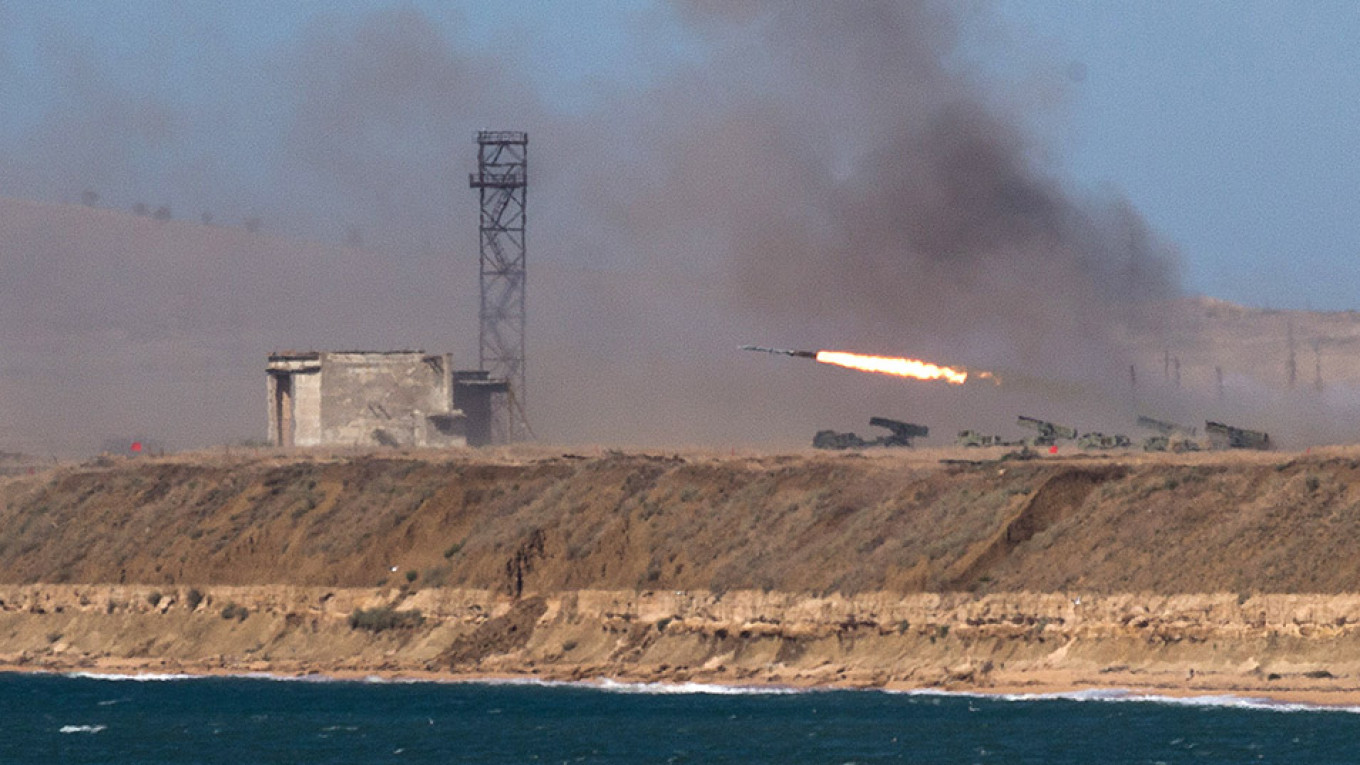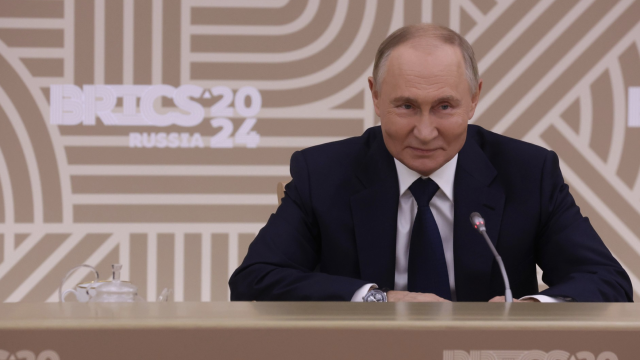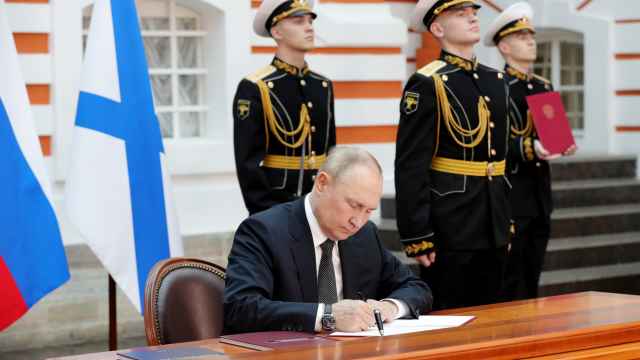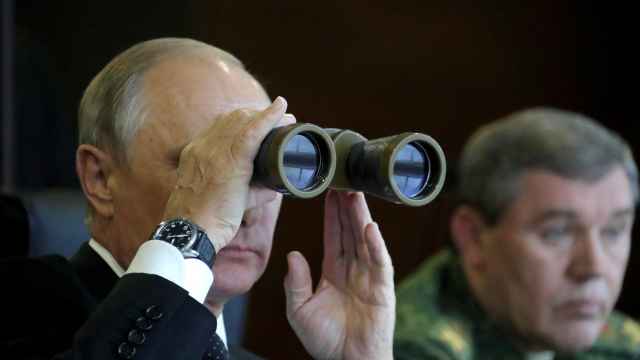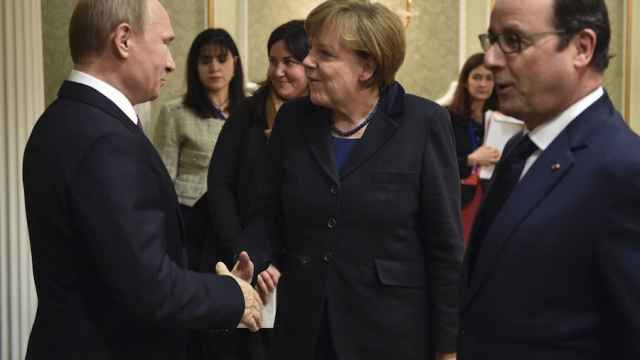NATO has rejected Russian President Vladimir Putin’s calls to suspend deployment of missiles in Europe that were banned under a recently abandoned U.S.-Russian nuclear pact.
The Kommersant business daily reported and the Kremlin confirmed Putin’s offer, which came amid concerns that Russia and the U.S. are headed toward an arms race after Washington exited the Intermediate-Range Nuclear Forces Treaty (INF) pact last month. The INF pact’s demise means both Washington and Moscow are legally free to develop and deploy ground-launched nuclear and conventional ballistic and cruise missiles.
“Unless and until Russia verifiably destroys the SSC-8 system, this moratorium on deployments is not a real offer,” NATO spokeswoman Oana Lungesu was quoted as saying by the Financial Times newspaper.
SSC-8 is NATO’s name for the Novator 9M729, which the Western alliance says violates the INF Treaty’s range limits. Russia has said the Novator 9M729’s range puts it outside the treaty and rejected a U.S. demand to destroy the new missile.
NATO has “heard this proposal before” and saw it as “not a credible offer,” FT quoted Lungescu as saying of Putin’s letter.
France’s foreign ministry spokesperson, meanwhile, has said it is “studying” Putin’s proposal.
Russia has previously announced its decision not to deploy medium- and short-range missiles in Europe or other regions on the condition that the U.S. does the same.
The Pentagon said last month it had tested a conventionally configured cruise missile that hit its target after more than 500 kilometers of flight, its first such test since the Soviet-era treaty’s demise. Russia is close to completing preparations for a like-for-like response to the U.S. test, Deputy Foreign Minister Alexander Grushko said this month.
A Message from The Moscow Times:
Dear readers,
We are facing unprecedented challenges. Russia's Prosecutor General's Office has designated The Moscow Times as an "undesirable" organization, criminalizing our work and putting our staff at risk of prosecution. This follows our earlier unjust labeling as a "foreign agent."
These actions are direct attempts to silence independent journalism in Russia. The authorities claim our work "discredits the decisions of the Russian leadership." We see things differently: we strive to provide accurate, unbiased reporting on Russia.
We, the journalists of The Moscow Times, refuse to be silenced. But to continue our work, we need your help.
Your support, no matter how small, makes a world of difference. If you can, please support us monthly starting from just $2. It's quick to set up, and every contribution makes a significant impact.
By supporting The Moscow Times, you're defending open, independent journalism in the face of repression. Thank you for standing with us.
Remind me later.


